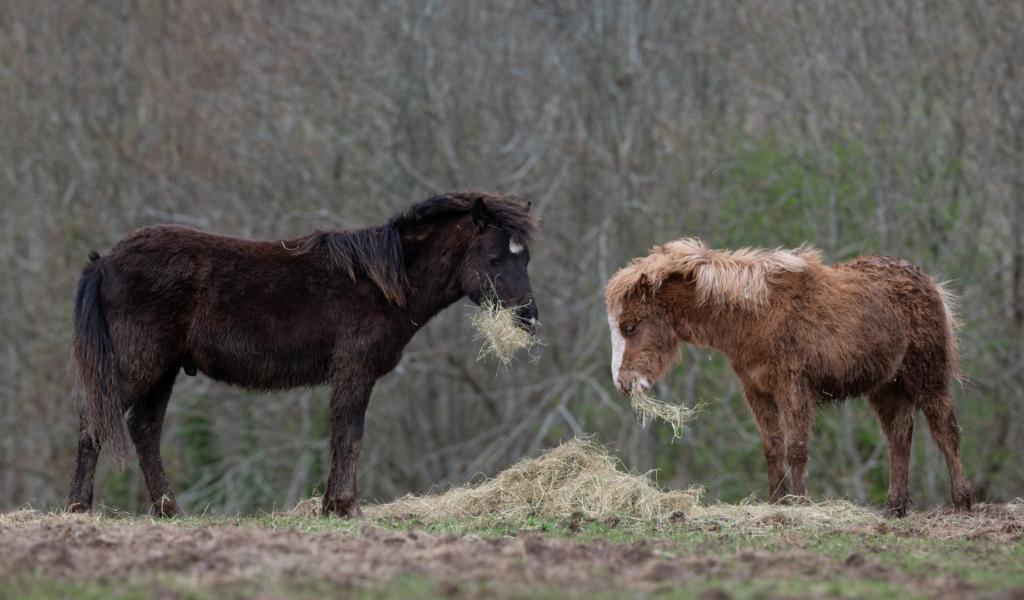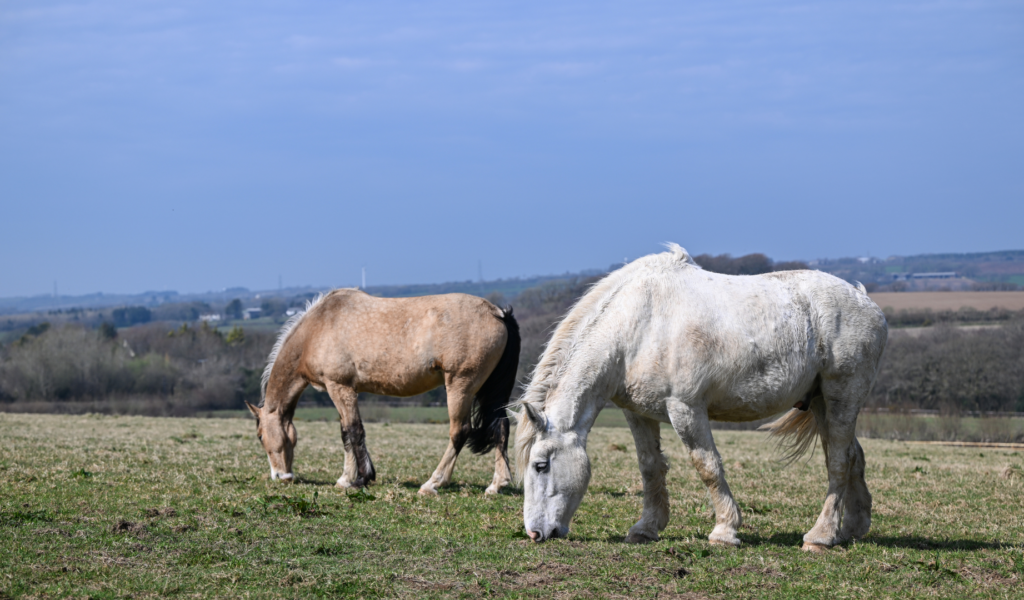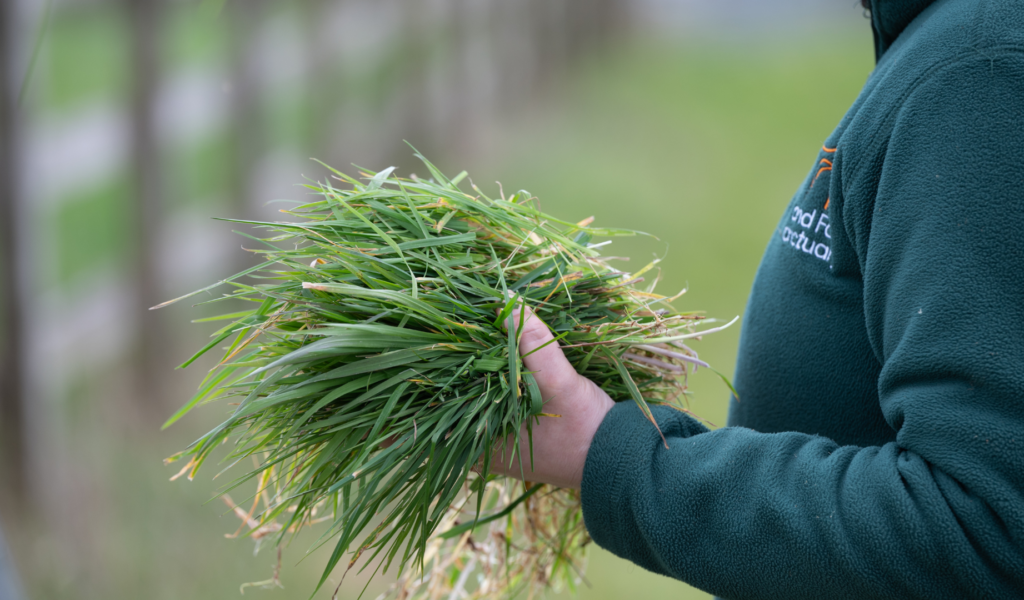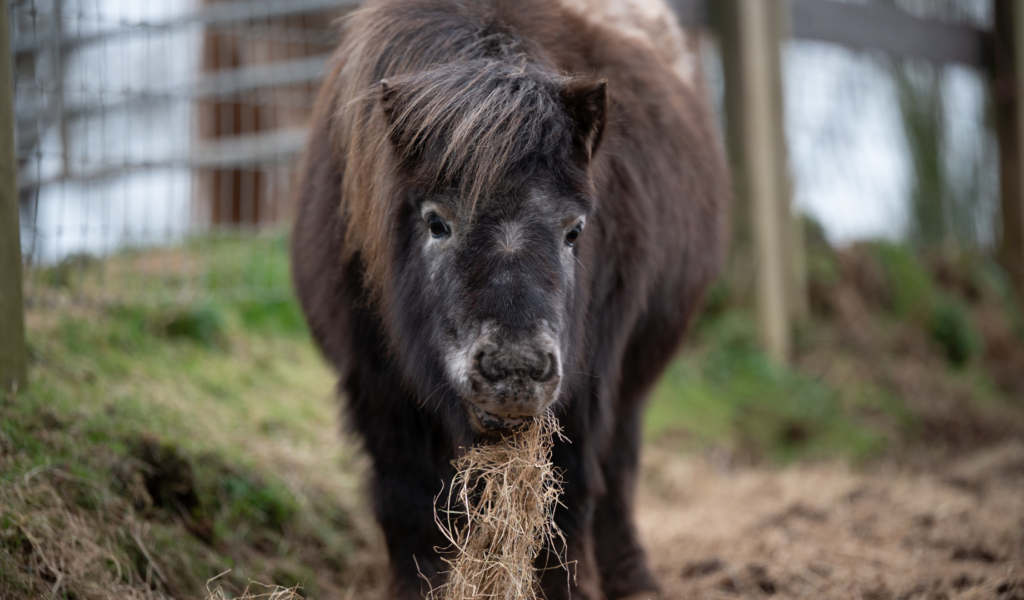Don’t Feed the Horses
Why? We love animals, and it’s natural for us to want to give them things to make them happy. Horses love food, so why shouldn’t we treat them to a tasty snack when we pass their field?
The problem is that the dietary balance of horses is crucial. They are trickle feeders and have evolved to eat a high fibre, low calorie diet, for up to 18 hours a day. Our Sanctuary Care teams work very hard to ensure that each pony gets exactly the right nutrition to keep them healthy. Our land is carefully managed for the right type of grazing, and additional feed is meticulously weighed to prevent obesity or medical complications. All responsible equine owners monitor feeding closely.
The Health Risks
The unmonitored feeding of horses can pose several health risks, including colic, which is a severe abdominal condition. Obesity is a further risk if equines regularly receive additional food from other sources. This can lead to a range of issues such as laminitis, metabolic disorders and other long-term health complications. Some foods may be poisonous or toxic to equines, and some may cause horses to choke.

-
Many foods and plants are toxic and potentially lethal to ponies.
The list is huge but includes things like grass cuttings, potatoes, tomatoes, onions, garlic, chocolate, avocado, rhubarb, fruits with stones and seeds, sycamore, acorns, ferns, ivy and foxgloves.

Foraging Disruption
Equines naturally forage for a variety of grasses and plants throughout the day. It’s essential to allow them to eat their natural diet to receive the necessary nutrients for their best health and well-being, healthy digestion and mental stimulation.
-
Short green grass is often high in sugar and low in essential nutrients, leading to potential health issues like obesity and laminitis. It’s a bit like feeding a pony bars of milk chocolate!
Longer grass is more fibrous and can contain fewer sugars, providing a healthier forage option that better supports the digestive health and overall well-being of ponies.
Hand Feeding
Our Sanctuary Care teams generally avoid feeding horses and ponies by hand because this can often lead to behavioural issues, such as nipping or aggressive begging. Hand feeding can also create a dependency on humans for food, undermining their natural foraging instincts and making them more anxious when food is not immediately available.


Biosecurity Concerns
Imagine if you’ve walked a mile across the countryside, hand feeding horses in several fields. Sharing food with horses poses a significant risk of disease transmission, as it can introduce infections and pathogens such as strangles that may otherwise remain contained within individual herds, jeopardising the health of all horses involved.
The hand feeding horses from different herds can result in conditions like strangles and equine influenza, equine herpesvirus and intestinal parasites.
Interacting Without Feeding
You can still enrich the lives of horses and ponies without directly feeding them. Try connecting with horses in fields by observing them from a distance and engaging in gentle interactions, such as talking to them. Perhaps spend a mindful moment watching and listening. Horses and ponies are sentient creatures that live in the moment and are aware of sounds and movement for miles around them.
You can help make a real difference to horses and ponies by reporting any health fears or unusual behaviours to their owner. If you have serious concerns, please contact an equine welfare organisation like The Mare and Foal Sanctuary.

-
Health risks: Unregulated feeding can lead to serious health issues. Many common foods can be harmful or lethal to ponies.
Poor nutrition: Horses require a carefully balanced, natural diet through foraging, which supports their overall health and well-being. Unmonitored feeding disrupts this balance.
Behaviour issues: Hand feeding can lead to behavioural problems, such as aggressive begging and dependency.
Biosecurity risks: Sharing food poses a serious risk of disease transmission between different herds.
Instead, enrich the lives of horses and ponies by observing, interacting gently and respectfully, and reporting any health concerns to owners or equine welfare organisations.
Our Work at The Mare and Foal Sanctuary
Advice and Resources
Lifelong Sanctuary
Rehoming


